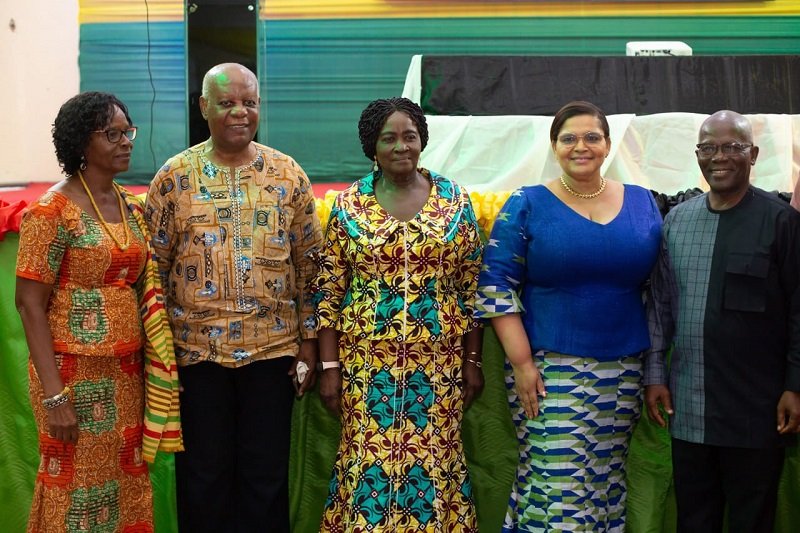ARTICLE AD
“One way to enhance Implementation Research (IR) capabilities in Africa, and address context specific barriers that inhibit effective delivery to improve health outcome is to build capacity,” Prof Phyllis Daro-Gyeke, Principal Investigator for the African Regional Training Centre (ARTC), a collaborator for Good Clinical Practice (GCP) workshop said.
“The ARTC pays particular attention to building capacity. Collaborating on this GCP programme is one of the ways we contribute to elevating research standards through training,” she explained.
Prof Daro-Gyeke said this at the 2023 edition of the GCP workshop held in Kumasi.
With a focus on upholding ethical standards and quality clinical research, the Good Clinical Practice (GCP) 2023 workshop brought together early mid-career scientists, clinicians, diverse health professionals and academics for a collaborative learning experience.
The 3-day Continuous Professional Development (CPD)-eligible workshop was organized by the Global Health and Infectious Disease Research Group (GHID) at the Kumasi Centre for Collaborative Research in Tropical Medicine (KCCR), Kwame Nkrumah University of Science and Technology (KNUST) in collaboration with the African Regional Training Centre with support from the World Health Organization (WHO) Special Programme for Research and Training in Tropical Diseases (TDR), and the German-West African Centre for Global Health and Pandemic Prevention (G-WAC)
The full-time workshop, which has been running for the past four years encompassed fundamental concepts, providing the diverse participants with practical and context-specific knowledge essential for conducting medical research involving humans in compliance with Good Clinical Practice (GCP).
“GCP training is indispensable for ensuring the safety and rights of participants in medical research, drawing lessons from historical ethical breaches such as the Nuremberg Code and the thalidomide tragedy,” said Dr. Harriet Affran Bonful, lecturer at the Department of Epidemiology and Disease Control at the School of Public Health, University of Ghana (UG).
Angelika Kellings journeyed from Europe to contribute her expertise as a faculty member on the course.
She said, “I really enjoy this GCP training because of the comprehensive online courses that participants must take before reporting for three whole days of lectures, training and group work. Seeing participants developing over this period is wonderful.”
“Being a lecturer in this workshop, I am able to share my stories and experiences to help participants gain more insight in the tangibles of GCP,” she added.
Dr. Yvonne Adu-Boahen, head of Clinical Trials at the Food and Drugs Authority (FDA), and faculty member for the workshop, agreed with Angelika on the comprehensive nature of the course. She also commended the selection criteria for participants and urged that it should be maintained.
Dr. John Amuasi, Director of G-WAC and lead for GHID, was confident the variety of expert faculty contributed to making the experience truly exceptional. He was pleased with the response to the call by young professionalS to expand their knowledge in clinical research.
“Two hundred and seventy-two (272) people wanted to be part of this workshop, and 76 were admitted with a fully funded scholarship after a rigorous selection process,” he said.
Dr Amuasi noted the workshop saw a near 50/50 distribution of males and females and a wide range of age groups in attendance.
“It's fantastic to witness this diverse gathering with participants representing not only a range of professional backgrounds but also various career stages, all displaying a keen interest in this workshop,” he said.
Dr Ruth Owusu-Antwi, a lecturer at the department of Behavioural Sciences at the School of Medicine and Dentistry, KNUST, said, “I came across the advert for this training and I jumped at it. Although I’m a clinician and an academician, I thought being part of this training would improve my competence and help me translate all questions into research designs that meet GCP standards.”
Dr Owusu-Antwi commended the organizers and shared that “her expectations had been exceeded.”
Dr Hutton Mensah, a specialist in internal medicine at the Komfo Anokye Teaching Hospital also said, “I have really enjoyed the programme and I have learned from all the faculty presenting on quality control, quality management, what good clinical practice entails, and how to conduct clinical research.
“We hope that GCP 2023 would cause all our participants to pause and think. Pause and think about the design of studies, planning of studies and in the implementation of studies.
"We hope that wherever they find themselves, they would do everything possible to protect the participants they are working with and ensure integrity and confidence of their research results."
Good Clinical Practice (GCP) is part of the Skills for Excellence In Science Series (SEXISS), a series of workshops which run at various times during the year.
The series is aimed at promoting excellence in science, medical, bio-medical and advanced nursing practitioners, graduate students and early mid-career scientists.

DISCLAIMER: The Views, Comments, Opinions, Contributions and Statements made by Readers and Contributors on this platform do not necessarily represent the views or policy of Multimedia Group Limited.

 
 
 
 
 
 
 
 
 

 1 year ago
74
1 year ago
74 

